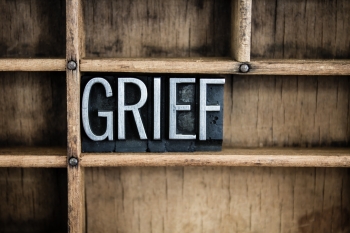
It's been said that the intensity of your grief is equal to the intensity of your love. Therefore, it's no surprise that grief hits all of us a little differently, and there's no one true way to go through the loss of somebody we love. While there's been lots of models proposed that center around the process of grieving (most famously, Elisabeth Kubler-Ross' stages of dying applied to grief: Denial, Anger, Bargaining, Depression, Acceptance or DABDA), grief is not a one size fits all process. We spend our lives learning how to love and healthfully attach to others, but separation through death is tricky.
In my clinical practice with adolescents who have lost a brother or sister, I've noticed a few patterns in the symptoms of grief that they display. When I began lecturing on these increasingly common coping styles, I was surprised by the amount of people who would approach me to let me know that these styles applied to them, too, as grownups coping with grief. So, in the hope that you might relate to the styles I have seen in my practice, I have outlined two of four below. Remember, your grief, like you, is unique. These styles are meant to be broad guidelines.
1. The Old Soul: Old Souls tend to put the grief of others before their own. They are the caregivers of other grievers in their lives, such as siblings, parents, or friends. Old Souls may be so busy caring for grieving loved ones that they may appear as though they're coping fairly well on the surface, when, in fact, they're in need of support, too. Old Souls hate to burden other people, so they often suffer in silence. Without intervention, they may become resentful, or feel isolated. If you're an Old Soul, you may want to explore ways to communicate your needs to others. Practice gentle ways of saying "No" when helping others feels too overwhelming. For example, try saying "I'd really love to help you with your thank-you cards, but I'm feeling a little overwhelmed myself today, and I need to take some time alone." Journaling, taking walks, practicing gentle yoga, and finding other ways to restore body and spirit through the art of self care may be very helpful for an Old Soul.
2. The Breakaway: As implied by the title, Breakaways find a variety of methods to escape the pain of grief and loss. This can be through cutting off relationships, relying on addictive and potentially numbing substances like alcohol, drugs, or cigarettes, or engaging in other behaviors that bring about initially pleasurable feelings like impulse shopping. Breakaways may feel unprepared to talk about their grief because it feels too painful, so they may say nothing at all or deny that they're having a tough time, when they really need a safe space and a listening ear. If you can related to the Breakaway you may want to begin practicing the 3 As of Awareness, Acceptance, and Action. First, examine the thoughts you have that lead you to running away from the pain of grief: do you feel as though they may be too overwhelming or painful? Next, acknowledge that you feel the way you do: maybe you feel vulnerable, perhaps afraid or overwhelmed. Simply accept that your feelings belong to you and they are valid. They are not wrong or bad, but yours to feel and experience, when you're ready. Finally, commit to one small action: perhaps it's taking a few deep breaths before reaching for your vice of choice or avoiding a conversation. It may seem like no big deal, but breathing creates micro-moments of time and space for you to exist in the moment and simply be with your feelings. This creates mindfulness and, perhaps one day, a path to another action toward coping with grief.
Can you relate to these coping styles, or are you finding they don't ring any bells? If so, give us a shout at The Center for Growth to talk more about your experiences. If not, check out Part 2, where I'll discuss The Replacement and The Rubber Band.
























